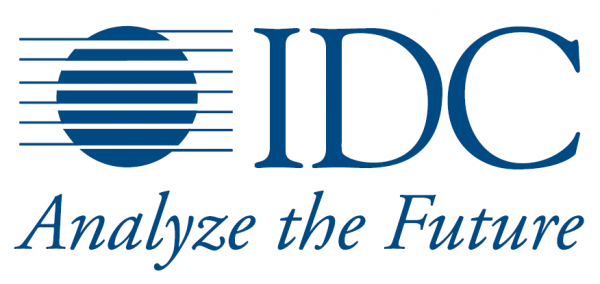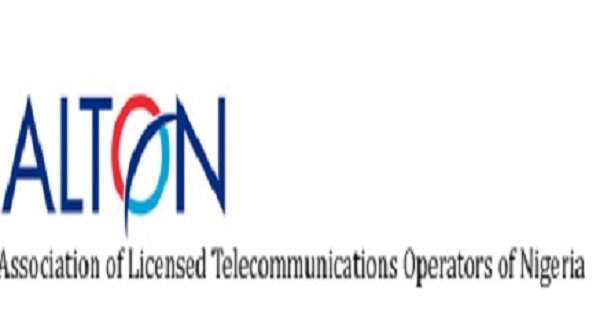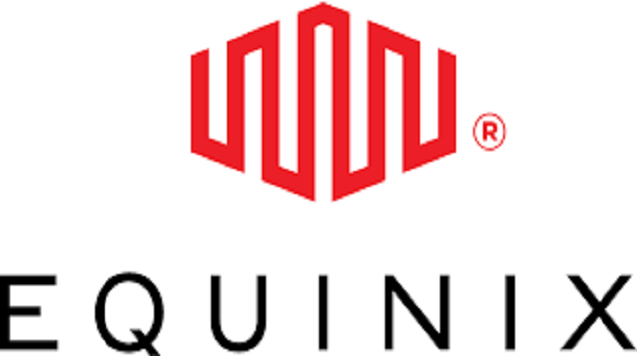Telecom
IDC COVID-19 Tech Index Shows IT Buyer Confidence Plunges in the US While Tentative Signs of Stabilization Appear in Asia/Pacific

The recent data released by International Data Corporation’s COVID-19 Tech Index revealed that IT spending expectations will remain uneven, with significant differences across countries, industries, and companies.
Overall sentiment in the US has dropped in the past two weeks, as businesses adjust to bearish GDP forecasts for Q2, and confidence remains soft in Europe.
There are tentative signs of improvement in the Asia/Pacific region, however, with confidence levels showing gradual recovery in China and other countries.
Businesses continue to indicate likely cuts to spending on traditional IT products and services in the near term with deep cuts projected by companies that have been directly impacted by the COVID-19 crisis and the resulting economic shutdown.
While some firms point towards increased spending on specific technologies, all indicators point towards a significant overall contraction in the next few months with the pace of recovery highly dependent on the pace and stability of measures to reopen economies around the world in Q3.
Stephen Minton, program vice president in IDC’s Customer Insights & Analysis group said, “A month ago, overall spending projections by IT buyers were still positive in a few areas like artificial intelligence (AI) and other digital transformation projects.
“US companies were especially reluctant to impose delays on strategic IT projects and deployments, but the reality of a major economic contraction in Q2 appears to have caught up with CIOs and IT departments in the last few weeks.
“Where demand is still increasing, it is increasingly focused on a narrow range of technologies that are critical to support remote workers, such as videoconferencing and remote access solutions.”
The COVID-19 Tech Index uses a scale of 1000 to provide a directional indicator of changes in the outlook for IT spending and is updated every two weeks.
The index is based partly on a global survey of enterprise IT buyers and partly on a composite of market indicators, which are calibrated with country-level analyst inputs relating to medical infection rates, social distancing, travel restrictions, public life and government stimulus. A score above 1000 indicates that IT spending is expected to increase, while a score below 1000 points towards a likely decline.
IT buyer confidence in Europe seemed to stabilize in the first half of April, but then dipped again towards the end of the month.
This eb and flow in sentiment is likely to continue for a while as businesses react to uncertainty around the pace, effectiveness, and risks associated with scaling down the restrictive measures that have successfully slowed the spread of the virus but also have led to what most economists believe will be a huge GDP downturn in the current quarter.
“While US and European firms became a little more pessimistic in the second half of April, businesses in Asia/Pacific showed some signs of improving confidence, which reflects a general sense of optimism that the worst may be over in a few countries including China.
“The crisis began in China and it makes sense that it may end there soonest, although it’s too soon to be sure this isn’t a false dawn given that measures to open the economy will be carefully managed for any signs of a second wave of infections.
“The impact on IT spending will be continued uncertainty for some period with many firms lacking the visibility to make major strategic decisions or commit to short-term spending increases,” said Minton.
Market indicators are still more negative than buyer intent surveys with most economists now extremely pessimistic about the near term while restrictions remain in full force across many countries.
Early measures to begin relaxing lockdown measures in some European countries will be watched closely by other countries including the US, and any sign of returning strain on health services could lead to a more prolonged period of social distancing.
In this uncertain environment, businesses will continue funding mission-critical IT deployments including cloud services and will seek to support remote workers, but some new projects will inevitably be deferred.
“The cloud isn’t going anywhere, all of the data stored in the cloud isn’t going anywhere, and the need for companies to analyze and extract value from all of that information isn’t any less today than it was three months ago. said Minton.
“But decisions to fund new deployments will be hard to make for firms experiencing major declines in revenue and spending cycles will be longer while decision makers are spread around the world in remote locations.
“New tech products will come to market more slowly and upgrades to office networks or equipment are a low priority while offices remain closed.
“These headwinds will pass, but there are still milestones to clear before IT spending begins to grow again.”
The IDC COVID-19 Tech Index is a leading indicator for IT spending, which is designed to provide rapid updates to changes in buyer sentiment and underlying market indicators before these are factored into official market and macroeconomic forecasts.
The index is based on a scale whereby a score higher than 1000 indicates growth in IT spending, while a score below 1000 indicates a decline.
Complete results from the most recent index as well as additional research related to the pandemic can be found on IDC’s COVID-19 microsite at https://www.idc.com/covid19.
The index is based on surveys of enterprise IT buyers around the world, who are asked to provide guidance on a variety of factors including general business confidence, overall IT spending plans and specific changes to budget allocations for individual technologies. Additionally, the index score is weighted with a composite of “market indicators” that include macroeconomic forecasts calibrated with inputs relating to medical data, social isolation measures, and the impact of government stimulus.
IDC will host a special COVID-19 Tech Index webinar on May 7th at 11:00 am U.S. Eastern time.
In the presentation, Stephen Minton and Jessica Goepfert will discuss the most recent index results, the outlook for technology spending by industry, and how the pandemic is impacting various organizations around the world. Details and registration for this webinar are available at https://bit.ly/3cjMm4w.
Telecom
FG Launches Galaxy Backbone’s 1Gov ECM Platform, Marks Major Milestone in Nigeria’s Digital Transformation Journey

The Federal Government of Nigeria, through the Office of the Head of the Civil Service of the Federation (OHCSF), has officially launched the 1Gov Enterprise Content Management (ECM) Platform, developed and powered by Galaxy Backbone Limited (GBB). The launch marks a historic milestone in Nigeria’s journey toward building a digitally-driven, efficient, and knowledge-based public service.

The Go-Live ceremony, held at the Head of Service Conference Hall, Abuja, brought together senior government officials, including Permanent Secretaries from the Ministry of Solid Minerals Development, Ministry of Foreign Affairs, Ministry of Special Duties, the management of Galaxy Backbone Limited, partners, and key stakeholders in Nigeria’s public sector digital ecosystem.
Delivering her address, the Head of the Civil Service of the Federation, Mrs. Esther Didi Walson-Jack, described the launch as a defining moment in the transformation of Nigeria’s civil service. She noted that the deployment of the GBB 1Gov ECM represents the fulfilment of a major commitment under the Federal Civil Service Strategy and Implementation Plan (FCSSIP) aimed at driving efficiency, transparency, and data-driven decision-making across the service.
Mrs. Walson-Jack highlighted the progress made over the past year and seven months, including the creation of 59,344 official email accounts, comprehensive data cleansing and harmonization processes, and the successful migration from the previous Laserfiche ECMS to Galaxy Backbone’s sovereign 1Gov Cloud ECM platform. She emphasized that no Ministry, Department, or Agency (MDA) will need to restart the process, as the OHCSF has fully transitioned to the locally hosted platform.
In outlining the rationale behind the migration, she identified four key pillars underpinning the initiative:
- National Sovereignty of Digital Infrastructure: Strengthening Nigeria’s ownership and control over its data and digital systems through a government-owned platform managed by GBB.
- National Interoperability: Eliminating silos by enabling seamless collaboration and information sharing across MDAs through a unified platform.
- Scale Advantage: Promoting uniform record management and operational standards across government institutions.
- Faster and Inclusive Adoption: Enabling swift onboarding, electronic workflows, and e-signature adoption to accelerate the government’s transition to digital processes.
During a live demonstration of the 1Gov ECM platform, Mr. Ayodeji Bakare, 1Gov ECM Project Lead, reaffirmed GBB’s commitment to powering the Federal Government’s digital transformation goals. He revealed that over 893 staff members have already been enrolled and are actively using key features such as GovMail, document management, and workflow automation tools that enhance efficiency, transparency, and accountability.
Representing the Managing Director/CEO of Galaxy Backbone Limited, Professor Ibrahim A. Adeyanju, the Executive Director, Finance and Corporate Services, Mr. Sani Ibrahim, commended the OHCSF for its visionary leadership and collaboration. He stated that the deployment of the 1Gov ECM brings Nigeria significantly closer to achieving a fully paperless government by December 31, 2025, emphasizing that the Galaxy Backbone 1Government Cloud remains central to the nation’s digital transformation agenda.
He further highlighted that GBB has already deployed its 1Government Cloud solution across several ministries and agencies, including the Ministry of Foreign Affairs, Ministry of Solid Minerals Development, and the Federal Ministry of Communications, Innovation and Digital Economy, among others. This, he noted, reflects GBB’s unwavering commitment to supporting all MDAs in their digitalisation journey, ensuring that Nigeria achieves its national digital transformation and sustainability goals.
The event concluded with renewed commitments from government leaders, partners, and MDAs to continue working collaboratively with Galaxy Backbone in advancing the modernization of Nigeria’s public service through the deployment of secure, innovative, and sustainable digital systems.
Telecom
ALTON Seeks Clear Rules to Strengthen Nigeria’s Digital Economy

Association of Licensed Telecommunications Operators of Nigeria (ALTON) has urged lawmakers to provide unambiguous regulatory guidance in the proposed National Digital Economy and E-Governance Bill, 2025, emphasising that clarity and structured collaboration are essential to drive investor confidence and sustainable growth in the country’s digital sector.

Gbenga Adebayo, chairman, ALTON
Gbenga Adebayo, chairman, ALTON, presented the association’s position during the Joint National Assembly Committee hearing on the Bill, commending legislators for their efforts to modernise Nigeria’s digital landscape and establish a legal framework for emerging technologies, including Artificial Intelligence (AI).
Representing all licensed telecom network and infrastructure operators in Nigeria, ALTON acknowledged the transformative potential of the Bill but highlighted concerns about overlapping mandates, institutional independence, and the need for coordinated regulatory action.
“The (NCC) should retain its statutory oversight of telecommunications networks and infrastructure, while the National Information Technology Development Agency (NITDA) should lead on digital policy and e-governance,” Adebayo said, while noting, “Ensuring that these agencies operate within clearly defined roles will prevent duplication, enhance efficiency, and foster investor trust.”
The association warned that regulatory ambiguity between NITDA and NCC could slow implementation, disrupt service delivery, and undermine confidence in Nigeria’s digital economy.
ALTON recommended a deliberate separation of policy guidance and technical regulation, citing international best practices from the United Kingdom, India, and the European Union, where such structures have successfully balanced accountability with innovation.
The association also called for a review of Section 82 of the Bill, which grants ministerial directive powers, arguing that safeguarding regulatory independence is critical for maintaining investor confidence and ensuring transparent governance.
To further strengthen inter-agency collaboration, the association proposed the creation of a National Digital Cooperation and Interoperability Framework
The framework would formalise joint action among NITDA, NCC, the Nigeria Data Protection Commission (NDPC), and the Office of the National Security Adviser (ONSA), providing a structured platform for coordination and policy alignment.
“Embedding structured collaboration within the Bill is essential to avoid policy fragmentation and improve coordination across government institutions,” Adebayo noted.
ALTON reaffirmed its commitment to supporting Nigeria’s digital transformation while emphasising that the success of the Digital Economy and E-Governance Bill depends on establishing clear jurisdictional boundaries, ensuring institutional independence, and promoting effective regulatory cooperation.
“Our goal is a sustainable digital economy driven by innovation, accountability, and investor trust,” Adebayo added, stressing that clarity and collaboration are the pillars that will define Nigeria’s digital future.
Telecom
Equinix Unveils Plans for New $22m Data Center in Lagos

Equinix, Inc., the world’s digital infrastructure company™, has announced its intention to open its latest high-performance data center in Lagos, Nigeria. The $22 Million investment in LG3 marks the first phase of an ambitious investment plan of around $100 million aimed at transforming Africa’s digital landscape over the next two years.

Set to open in Q1 2026, the new site will deliver vital new infrastructure to Nigeria empowering local businesses to scale, while drawing international companies to the country in this strategically positioned hub for global connectivity.
The addition of the new LG3 Data center in Nigeria also brings the incorporation of Equinix Fabric into the metro, enabling businesses to securely connect their physical and virtual infrastructure to cloud service providers, partners, and other companies to other Equinix locations all around the world.
“LG3 marks a significant milestone in Equinix’s long-term commitment to bridging Africa’s digital divide,” said Wole Abu, Managing Director for West Africa at Equinix. “As Lagos emerges at the crossroads of talent, innovation, and global connectivity, this facility is accelerating access to technologies like cloud, AI, and the next wave of startups. We’re not just building data centers, we’re fostering growth, empowering innovation, and laying the groundwork for an interconnected African economy ready to lead on the global stage.”
Olawale Owoeye Managing Director at Cedarview added “Equinix’s Lagos data center will provide us with the robust and resilient platform our customers demand to expand our digital footprint. The unparalleled reliability and access to a global ecosystem empower us to deliver high performance solutions to our customers and the new LG3 data center in Lagos is key step in ensuring we remain at the forefront of businesses connecting Africa.”
Nigeria is the second-largest economy in Sub-Saharan Africa. It is home to a vibrant and increasingly tech-savvy population. Lagos, in particular, is at the epicenter of Africa’s digital transformation, recognised as the only African city in the Global Top 100 Startup Ecosystems.
Commenting on the opportunity for Equinix in Africa, Aslıhan Güreşcier, Vice President, EMEA Growth & Emerging Markets at Equinix said “Africa’s digital transformation is accelerating, driven by a young population, rising internet access, and increasing demand for secure data infrastructure. With the opening of our newest data center in Lagos, Equinix is proud to invest in this dynamic region, supporting our customers’ growth with world-class data centres that power everything from banking and education to emergency services and commerce.”
Since entering the African market in 2022, Equinix has expanded its presence in key African markets including, Nigeria, Ghana, and Côte d’Ivoire. Last year the company also opened its first data center in Johannesburg South Africa, significantly strengthening Equinix’s global presence on the continent, accelerating Africa’s digital transformation by delivering sustainable, carrier neutral infrastructure that reliably connects it with the rest of the global economy.
With a footprint spanning over 270 data centers worldwide, Equinix is continuing to bring its global expertise and infrastructure to the region. This includes harnessing Nigeria’s strategic position as an international hub for global subsea cable connections, linking Africa with Europe, Asia, and beyond.
Equinix is committed to responsible investment and operations that prioritise sustainability. Across all our sites, including LG3, we work to reduce environmental impact and improve efficiency.

 News1 day ago
News1 day agoPreventive, Silicon Valley Firm May Birth Genetically Engineered Babies

 E-Business1 day ago
E-Business1 day agoNigeria to Unveil Single-Entry Emergency Passport for Citizens Abroad

 E-Financial1 day ago
E-Financial1 day agoFG Seeks Fresh $500m World Bank Loan for MSMEs

 General News1 day ago
General News1 day agoCOVID-19 Vaccines may Help some Cancer Patients Fight Tumors

 Telecom1 day ago
Telecom1 day agoGlo Announces N1m Monthly Giveaway in New Trivia Game

 E-Business1 day ago
E-Business1 day agoNITDA Highlights Economic Impact, Digital Transformation Gains, as ICEGOV 2025 Concludes in Abuja

 E-Financial1 day ago
E-Financial1 day agoUBA Reaffirms Commitment to Empowering African Entrepreneurs

 E-Financial1 day ago
E-Financial1 day agoNDIC Now Better Positioned to Prosecute Parties at Fault for Bank Failure



















